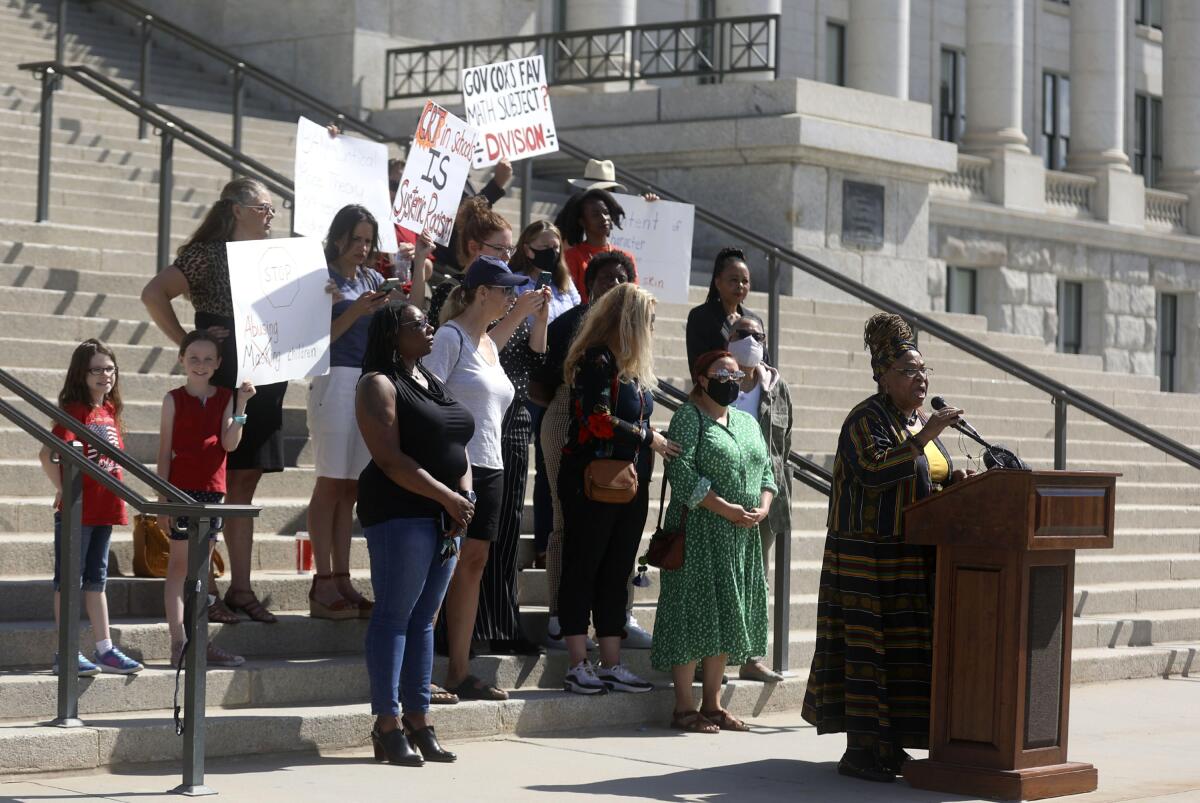Letters to the Editor: What critical race theory is (Hint: Republicans are wrong)

- Share via
To the editor: The new effort by Republicans to outlaw or otherwise restrict the teaching of critical race theory in public schools hearkens back to the Scopes Monkey Trial and the anti-evolution movement of the 1920s. A century later, some lawmakers are once again trying to legislate educational theory based on a limited understanding of what they are trying to restrict.
The concepts listed in the article as being targeted by Republicans are not part of critical race theory. Critical theory is just that — a theory that outlines a method for examining history from multiple perspectives and not just the perspective of the dominant culture. For many, encountering new ideas is challenging and sometimes frightening.
Furthermore, critical theory can address many ideas and perspectives, not just race.
Critical theory does not proclaim white males are to blame for all the world’s ills. That is obviously false. However, it is true that any dominant culture needs to be critically examined, and societies can then work to improve laws in ways that reduce the negative effects of the ills so discovered.
Gary Barton, Santa Ana
..
To the editor: Republicans in the North Carolina Legislature claim that the concepts of critical race theory include “the belief that a person’s race or sex determines their moral character, that people bear responsibility for actions committed in the past by other members of the same race or sex, and that they should feel guilty because of the two characteristics.”
I researched critical race theory going back to the 1970s and found no such language. A co-founder of the movement described it as a “collection of activists and scholars interested in studying and transforming the relationship among race, racism, and power.”
So I am guessing the Tulsa Race Massacre will not be included in the Republicans’ history books, or it will just be remembered differently. A similar thing occurred after the Civil War when the United Daughters of the Confederacy demanded textbooks for public schools provide pro-Confederate versions of history and tell the story of the war from a southern point of view.
More than 100 years later, we still don’t like to admit the truth.
Kendall Wolf, Encino
More to Read
A cure for the common opinion
Get thought-provoking perspectives with our weekly newsletter.
You may occasionally receive promotional content from the Los Angeles Times.









